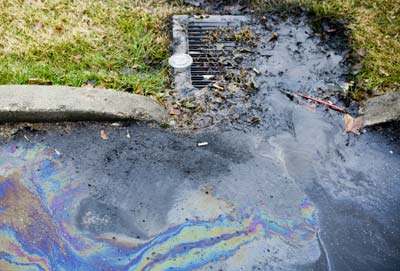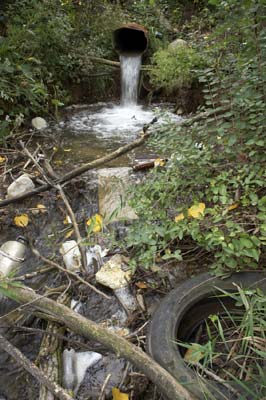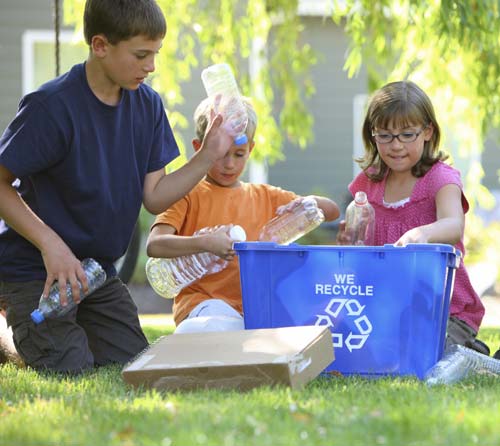
Stormwater pollution is a major cause of contamination in our
waterways. During rainfalls, everything from plastic bags to pesticides
can be carried from the streets to the streams.
Where does stormwater go? A common misconception is that storm
water is piped to a wastewater treatment facility. Storm drains take the
untreated water directly into a local waterway affecting fish and
wildlife. Most importantly, since much of our drinking water in Texas
originates from local lakes, rivers and streams, this pollution could
affect you!
There a few things you can do to safeguard the quality of our drinking water by preventing pollution from
entering your local stream, lake or river.

Keep your car and watershed clean and maintained
Instead of soaping up your car in the driveway, use a commercial car wash,
which is equipped with proper wastewater disposal measures. If you don’t
have access to a commercial car wash, wash your car in your yard with little
or no soap. Your yard will absorb the soapy water, preventing it flowing into
the storm drains.
Check your vehicles. Cars, boats and machines leak and spill if not regularly
maintained. If you spot a leak, repair it in a timely fashion. Spilled fluids
should be absorbed immediately with kitty litter or sand then properly
disposed.
Stop a lifetime of litter
Litter thrown on the ground, regardless of its size, affects the environment for
a very long time. The time improperly disposed trash spends in our
environment is staggering. For example, a cigarette butt takes two to five years to decompose and a soda
can takes 200 to 500 years to decompose.
Recycle as much of your trash as possible. It will help keep our waterways clean and provide materials that
may be used again. Take measures to avoid unintentional littering by securing your trash can lids and
lightweight items in your truck bed.
Recycling household hazardous wastes (HHW) and large
items such as old vehicles and appliances isn’t as difficult as
it may seem. Many communities have recycling centers
available to the public. Check with your city or county for the
availability of recycling options, HHW collections and solid
waste convenience stations. The disposal fee you may be
charged is a much smaller price to pay then you or the
environment would pay for illegal dumping.

Let the storm drain do its job
Trash and debris can collect at the drain causing it to clog.
The blockage will inhibit rainwater from flowing through the
drain, which causes flooding on the roadway or yard.
Blockages increase the risk of the impairment of water
quality and can be hazardous to wildlife.
Prevent turbid tributaries
If you have piles of mulch or dirt for your home or landscape improvement projects, be sure to keep them
covered. Uncovered piles are susceptible to being blown or washed away into the stormwater drains and
waterways. Dirt that is washed into waterways causes them to become turbid or “cloudy.” Turbidity can cause
a number of problems such as clogging fish gills, interfering with photosynthesis, smothering fish eggs and
other bottom dwellers or silting waterways and lakes, which can lead to flooding.
Being conscience of stormwater pollution consequences and helping to keep the environment clean will
ensure that your local recreational and drinking water sources will be safe for you and your community to
enjoy.